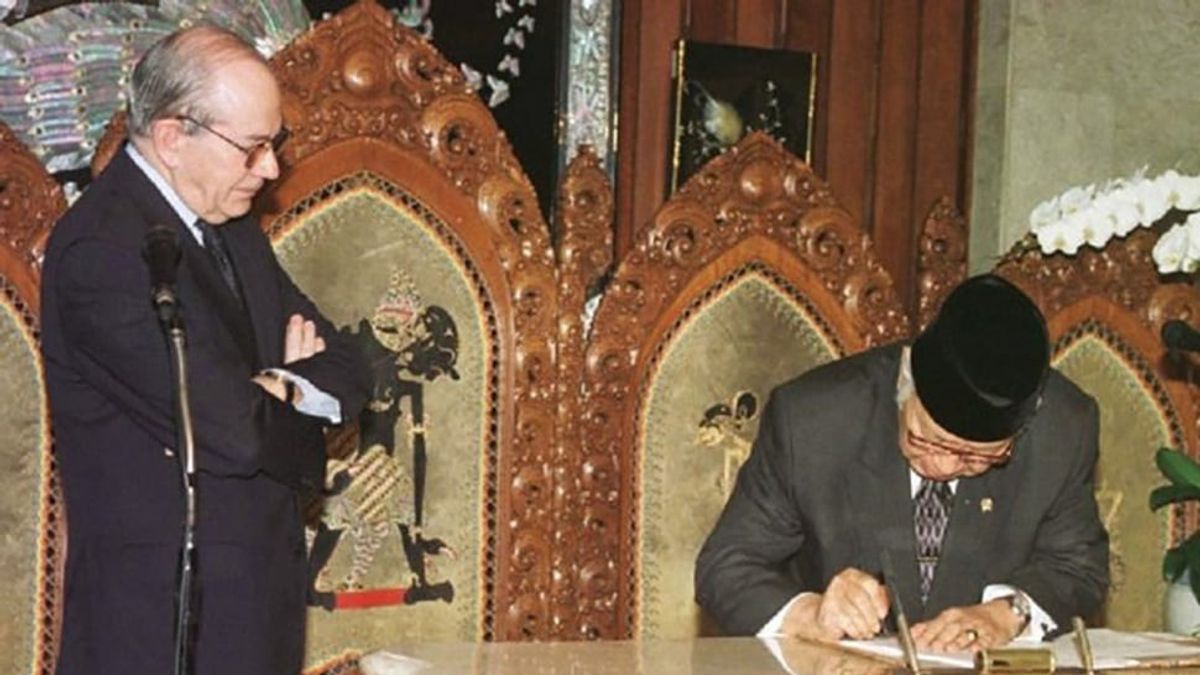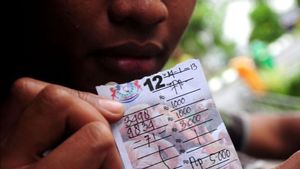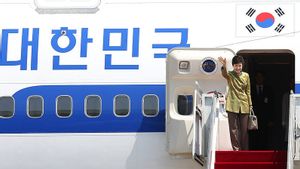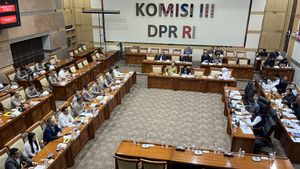JAKARTA - Suharto and the New Order have brought progress for Indonesia. The owner of power is able to increase economic growth. The New Order takes full advantage of its closeness to the Western Block. Foreign debt is also easy to obtain.
Problems arise. The policy of taking advantage of foreign debt is not a wise step. Permits for 16 National Banks were revoked as well. The Indonesian people panicked and pulled all their savings to the bank. This condition made the rupiah exchange rate to the US dollar penetrate up to Rp. 16 thousand. A marker of the collapse of the New Order.
Suharto was once considered the savior of Indonesia. He was a hero who fought to keep the Indonesian people away from the crisis caused by the Old Order era. He also tried to make economic improvements. Suharto began to dock to the western bloc.
The action brought abundant profits to Indonesia. The New Order government is flooded with foreign investment. Even the funds from foreign debt are given to Indonesia with joy. Efforts to use foreign debt to build are not a disgrace.
Foreign debt can be an investment strategy in strong national development. Indonesia's economy is growing. Development everywhere and the lives of the Indonesian people increased. The greatness was written by history.
This condition was also supported by the presence of economist groups who are members of the Berkeley Mafia. Disasters also arise one by one. Soeharto's political policies and the New Order began to abuse many. Corruption is growing everywhere.
The state money that should be used for the greatest prosperity of the people, is for the prosperity of officials. This condition affects foreign debt, which was originally a complement to Indonesia's development.
The debt is getting bigger. The rupiah exchange rate had weakened. However, it can be handled. Disaster arises. The New Order government was shocked by the monetary crisis that occurred in Thailand in 1997. Later the International Monetary Fund (IMF) tried to intervene.
SEE ALSO:
The IMF provides Indonesia with recommendations to avoid a crisis. These recommendations include revoking 16 national bank permits. The option actually brought disaster. The Indonesian people panicked and immediately withdrew their money from the existing banks.
This panic of society also resulted in a decline in confidence in the rupiah, which was followed by increased speculation activity in the foreign exchange market. As a result, the rupiah exchange rate from Rp. 2,000 per US dollar fell sharply to Rp. 16 thousand per US dollar on January 22, 1998. The rupiah exchange rate against this US dollar has nominally increased the obligation to pay foreign loans (government or private sector) by six times.
"Any type of business must experience bankruptcy facing an economic situation like this, especially for debtors whose business activities do not generate foreign exchange. One thing that needs to be recorded in the black history of New Order's economic policy is the IMF's fatal mistake in closing the 16 problematic National Banks," said Mahmud Thoha in the book Crisis of the Today and New Order (2003).
The drop in the rupiah exchange rate makes the Indonesian people stunned. Life becomes difficult. All sectors are affected. This condition is getting tougher when Indonesia depends on a series of imported products. Among other things, food, fruits, fuel, machinery, bicycles, and computers.
The product is indeed on the market, but the price is no longer affordable. At its peak, many companies are in danger of going out of business because the price of raw materials has increased. This phenomenon has made the unemployment rate increase sharply. All Indonesians were devastated by the economic crisis.
The Indonesian government is not immobile. All efforts have been tried. The government was initially confident that an economic crisis could be passed. However, all efforts led to failure. Putri Suharto, Siti Hardijanti Rukmana (Mbak Tutut) also tried to join in.
The MPR RI member tried to initiate the Rupiah Love Movement. The movement is considered an effort to reduce the impact of the crisis and make the rupiah strengthen again. Mbak Tutut then gave an example by selling his large US dollar.
His actions were also followed by other national celebrities. The result again failed. The economic crisis experienced by Indonesia is inviolable. Even the Indonesian people were quickly angry by inciting action to the streets to demand Suharto to resign and succeed in May 1998.
The most striking and unique thing is the reaction of President Soeharto's eldest daughter, Siti Hardijanti Rukmana or Mbak Tutut, who launched the Rupiah Love Movement by selling the dollar she had. Kompas daily contains a picture of Mbak Tutut when he sold 50 thousand US dollars at Bank Bumi Daya Imam Bonjol Branch, with an exchange rate of Rp. 6,450 in recent times.
This effort is proof of his love for the rupiah and concern for the economic crisis that is currently engulfing Indonesia. When the movement was rolled out, Mbak Tutut exchanged money when the exchange rate reached Rp. 10,150 per US dollar. The rupiah love movement was continued when the initiative of a number of journalists, a number of conglomerate leaders, high-ranking officials, business world executives and others, started selling their dollars," explained Sanjoto Sastromihardjo in the book Reform from the perspective of Sanjoto (1999).
The English, Chinese, Japanese, Arabic, and French versions are automatically generated by the AI. So there may still be inaccuracies in translating, please always see Indonesian as our main language. (system supported by DigitalSiber.id)















